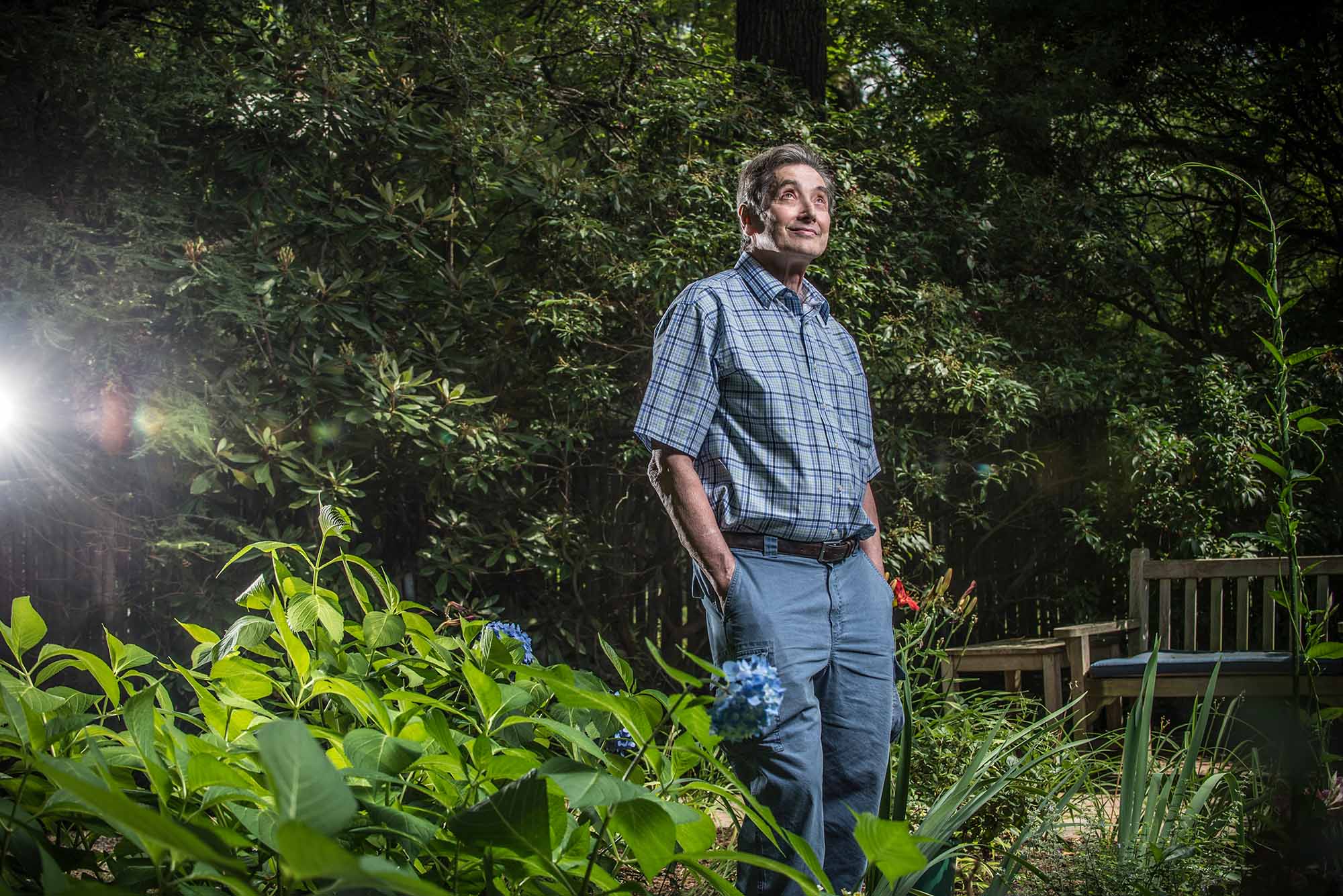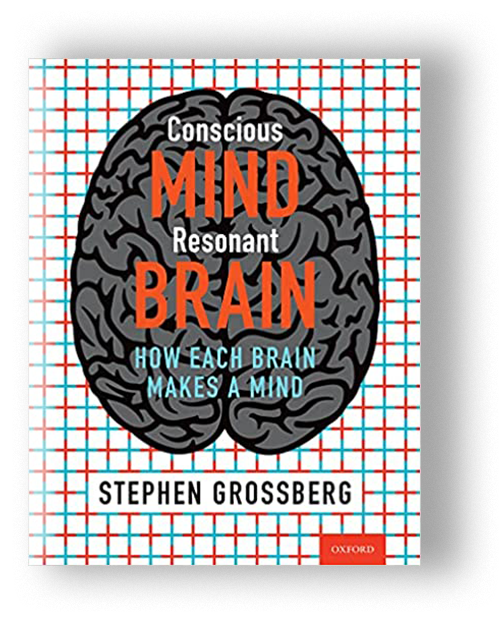Stephen Grossberg’s Magnum Opus Explores How Our Brains Make Our Minds

Stephen Grossberg pulled from more than 60 years of brain research for his 700-page magnum opus, published this year by Oxford University Press. Photo by Eric Levin
Stephen Grossberg’s Magnum Opus Explores How Our Brains Make Our Minds
Renowned neuroscientist, and BU professor emeritus, covers more than 60 years of pioneering brain research in 700-page book
Editor’s note: In October 2022, Stephen Grossberg was awarded the Lofti A. Zadeh Pioneer Award from the IEEE Systems, Man, and Cybernetics Society for “seminal contributions to understanding brain cognition and behavior and their emulation by technology.”
We all have brains. Yet we are all different. That’s because each brain shapes our individual mind, and it’s our mind that controls our behaviors, emotions, and experiences. So how does a brain give rise to a mind? That is the fundamental question that has largely defined the career of Stephen Grossberg, and it’s also at the root of a new book he’s published that puts a capstone on a remarkable career.

In 2015, 40 years after becoming a full professor at Boston University, Grossberg accepted the 2015 Lifetime Achievement Award from the Society of Experimental Psychologists for his pioneering research toward understanding how brains develop into minds. In accepting the honor, Grossberg expressed a desire to “grow toward something more enduring.”
This summer, Grossberg indeed created something enduring, pulling from more than 60 years of brain research to publish his 700-page magnum opus Conscious Mind, Resonant Brain: How Each Brain Makes a Mind (Oxford University Press, 2021). Across 17 chapters, Grossberg addresses topics such as “How a Brain Makes a Mind,” “How Do We See a Changing World,” “Target Tracking, Navigation, and Decision-Making,” “Seeing and Reaching to Hearing and Speaking,” and “From Knowing to Feeling.” Grossberg also explains how and why our brains can consciously see, hear, feel, and know things about the world, and then use these conscious representations to control goal-directed actions.
Grossberg, Boston University’s Wang Professor of Cognitive and Neural Systems, is widely recognized as one of the principal founders of the field of neural networks. Much of his research spanned three areas—neuroscience, psychology, and mathematics—and it largely revolved around two questions: How does the brain control behavior? and Can technology emulate biological intelligence?
From his book, BU Today identified three brief passages in particular that caught our attention and made us think more deeply about how our brains function:
- “Our brains are not digital computers! Many people in artificial intelligence, or AI, thought for a while that the brain is designed like a digital computer. Very few people today, however, believe that the brain operates like a digital computer. There seems to be more to our mental lives, after all, than just a morass of operating systems and programs. But what we are not does not teach us what we are.”
- “An understanding of how brains give rise to minds also leads to practical insights into the ‘human condition,’ and how our minds manage to deal with a world that is full of surprises and unexpected events. Such an understanding sheds new light upon how practical wisdom through the ages has divined important truths about how we can try to live our lives in a way that respects how our minds work best, and how we can better adapt to the world’s unexpected challenges. In particular, it clarifies various maxims that parents use to try to protect their children from ‘bad influences.’
- “Brain evolution is shaped by behavioral success. No matter how beautiful your ancestors’ nerve cells were, they could all too easily have ended up as someone else’s meal if they could not work together to generate behavior that was capable of adapting quickly to environmental challenges.”
Grossberg expresses deep pride in the publication of his work: “The book provides a self-contained and nontechnical overview of my lifetime of work with over 100 collaborators in a conversational style as a series of stories,” he says. “Taken together, these results are of interest to anyone who wonders how our brains make our minds, notably what makes us human, in both health and disease.”
Comments & Discussion
Boston University moderates comments to facilitate an informed, substantive, civil conversation. Abusive, profane, self-promotional, misleading, incoherent or off-topic comments will be rejected. Moderators are staffed during regular business hours (EST) and can only accept comments written in English. Statistics or facts must include a citation or a link to the citation.